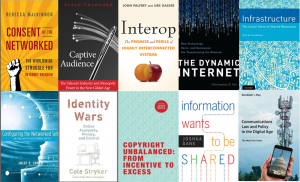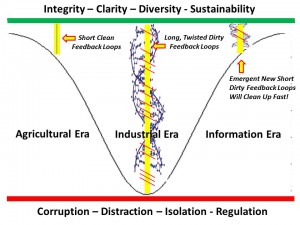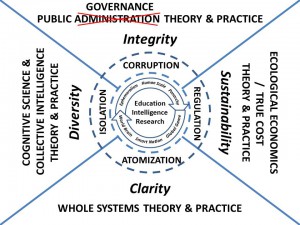
Always useful!
Important Cyberlaw & Info-Tech Policy Books (2012 Edition)
by Adam Thierer on December 17, 2012 · Add a Comment
The number of major cyberlaw and information tech policy books being published annually continues to grow at an astonishing pace, so much so that I have lost the ability to read and review all of them. In past years, I put together end-of-year lists of important info-tech policy books (here are the lists for 2008, 2009, 2010, and 2011) and I was fairly confident I had read just about everything of importance that was out there (at least that was available in the U.S.). But last year that became a real struggle for me and this year it became an impossibility. A decade ago, there was merely a trickle of Internet policy books coming out each year. Then the trickle turned into a steady stream. Now it has turned into a flood. Thus, I’ve had to become far more selective about what is on my reading list. (This is also because the volume of journal articles about info-tech policy matters has increased exponentially at the same time.)
So, here’s what I’m going to do. I’m going to discuss what I regard to be the five most important titles of 2012, briefly summarize a half dozen others that I’ve read, and then I’m just going to list the rest of the books out there. I’ve read most of them but I have placed an asterisk next to the ones I haven’t. Please let me know what titles I have missed so that I can add them to the list. (Incidentally, here’s my compendium of all the major tech policy books from the 2000s and here’s the running list of all my book reviews.)

Phi Beta Iota: A total “WOW.”
Includes, in this order (click here to read reviews, below to reach Amazon page):
Rebecca MacKinnon – Consent of the Network: The Worldwide Struggle for Internet Freedom
Susan Crawford – Captive Audience: The Telecom Industry and Monopoly Power in the New Gilded Age
John Palfrey & Urs Gasser – Interop: The Promise and Perils of Highly Interconnected Systems
Christopher Yoo – The Dynamic Internet: How Technology, Users, and Businesses are Transforming the Network
Brett Frischmann –Infrastructure: The Social Value of Shared Resources
and others.







